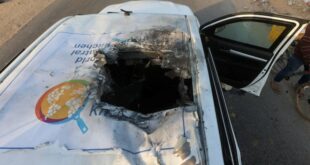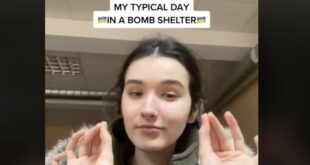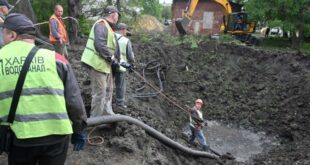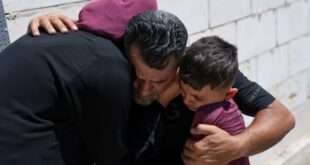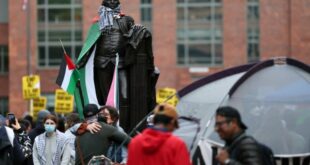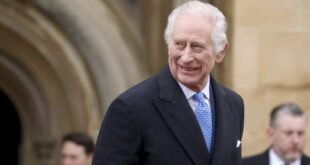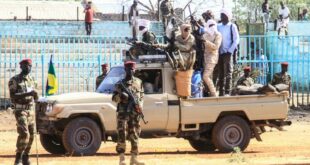Court to first rule on emergency measures to protect Palestinians as South Africa accuses Israel of genocide

Israel answers genocide charge at the International Court of Justice
7 hours ago
Israel responded to South Africa's allegation at the International Court of Justice that it is committing genocide in Gaza, saying the application should be dismissed as a libel designed to deny Israel's right to defend itself against Hamas.
At The Hague this past week, lawyers for South Africa and Israel presented two starkly different versions of the ongoing conflict in Gaza.
On Thursday, South Africa's application to the International Court of Justice (ICJ) for urgent measures to stop Israel's military operation in Gaza was underpinned by an accusation of genocide.
Israel's forceful rebuttal on Friday is rooted in the belief it has a right to self-defence against an organization — Hamas — that it, in turn, describes as genocidal.
Left to sort through six powerful hours of argument is a panel of 17 judges who are no strangers to acrimonious legal debate.
In recent years, the court has considered and ordered provisional measures in the Russia-Ukraine conflict, Myanmar's persecution of the Rohingya Muslim minority, and, most recently, in a Canada-Netherlands application against Syria to prevent acts of torture.
With the help of international law, the court must now consider whether to try helping untangle one of the world's most polarizing conflicts in recent memory.
South Africa seeking 'provisional measures'
At the start of the proceedings, the court's president, Judge Joan Donoghue, reminded lawyers to stick to the narrow question at hand: Whether emergency "provisional measures" that South Africa is seeking are warranted to protect Palestinian lives in Gaza, until the court considers the bigger question of whether Israel's actions there are genocidal in intent.
She reminded lawyers that they should "not enter into the merits of the case beyond what is strictly necessary."
The teams speaking for both South Africa and Israel still provided strongly worded views on the matter, using photos, audio and video recordings in an effort to bolster their diametrically opposed positions.
South Africa's lawyers pointed to Israeli attacks that have killed nearly 24,000 people in Gaza, to the mass displacement and shortages of food and water and medical aid, as well as comments by Israeli officials, and soldiers on the ground as "overwhelming and incontrovertible" evidence of Israel's genocidal intent.
"Every day there is mounting, irreparable loss of life, property, dignity and humanity for the Palestinian people," said lawyer Adila Hassim.

Israel's Oct. 7 response has crossed a line, South African minister says
10 hours ago
In an opening statement at the UN's International Court of Justice on Thursday, South Africa accused Israel of violating the UN’s 1948 Genocide Convention in its response to the Oct. 7 Hamas attacks. 'No armed attack on a state’s territory no matter how serious … can provide any justification for, or defence to, breaches of the Convention, whether as a matter of law or morality,' said Justice Minister Ronald Lamola.
Lawyers for Israel pointed to Hamas's attacks on Oct. 7, its torture of civilians and the killing of more than 1,200 Israelis, as well as capture of 250 hostages as evidence of the group's own genocidal aims.
They described Israel's reaction as an effort not to destroy Palestinians in Gaza, but to protect its own citizens. Lawyers also detailed efforts to facilitate the entry of humanitarian and medical assistance to Gaza as evidence that Israel's actions cannot possibly have genocidal intent.
Provisional measures, lawyers added, would tie Israel's hands in dealing with a dangerous threat. Legal adviser to Israel's Foreign Affairs ministry Tal Becker accused South Africa of "subverting the object and purpose of the genocide convention."
Becker called on the court to dismiss the case.

Israel says it is protecting its people in genocide case at ICJ
10 hours ago
Israel on Friday rejected accusations brought by South Africa at UN's International Court of Justice that its military operation in Gaza following the Oct. 7 Hamas attacks is a state-led genocide campaign against the Palestinian population. 'What Israel seeks by operating in Gaza is not to destroy a people, but to protect a people, its people, who are under attack on multiple fronts,' said the Israeli Foreign Ministry's legal adviser, Tal Becker, in an opening statement.
Ruling to come 'as soon as possible'
The genocide accusation against Israel has been as divisive as the latest bout of the conflict itself — now into its fourth month.
South Africa's application to the court in December garnered the support of many other countries sympathetic to the plight of Palestinians, including Turkey, Jordan and Bolivia among others.
But the accusation has been dismissed by the U.S. as "meritless."

Blinken calls genocide court submission against Israel 'meritless'
3 days ago
U.S. Secretary of State Antony Blinken says South Africa’s high-stakes genocide case against Israel set to appear before the International Court of Justice this week "distracts the world" as solutions for peace are being sought. He said it's particularly "galling" given those fighting against Israel are calling for the mass murder of Jews, but added that the daily toll of war on civilians in Gaza is far too high.
Later Friday, meanwhile, Canada's foreign affairs minister issued a carefully worded statement.
"Canada's unwavering support for international law and the ICJ does not mean we accept the premise of the case brought by South Africa," Mélanie Joly said in a statement.
"We will follow the proceedings of South Africa's case at the International Court of Justice very closely."
At the conclusion of the proceedings on Friday, Judge Donoghue promised the panel would rule on provisional measures "as soon as possible."
If the court decides in favour of imposing such measures, it will be up to the judges what they might look like.
The court, however, has no mechanism to enforce any of its rulings.
If it goes ahead, the court would then begin looking at the bigger question of genocide. A decision on that is likely to take years.
ABOUT THE AUTHOR

Host of CBC Ideas
Nahlah Ayed is the host of the nightly CBC Radio program Ideas. A veteran of foreign reportage, she's spent nearly a decade covering major world events from London, and another decade covering upheaval across the Middle East. Ayed was previously a parliamentary reporter for The Canadian Press.
*****
Credit belongs to : www.cbc.ca
 MaharlikaNews | Canada Leading Online Filipino Newspaper Portal The No. 1 most engaged information website for Filipino – Canadian in Canada. MaharlikaNews.com received almost a quarter a million visitors in 2020.
MaharlikaNews | Canada Leading Online Filipino Newspaper Portal The No. 1 most engaged information website for Filipino – Canadian in Canada. MaharlikaNews.com received almost a quarter a million visitors in 2020.

